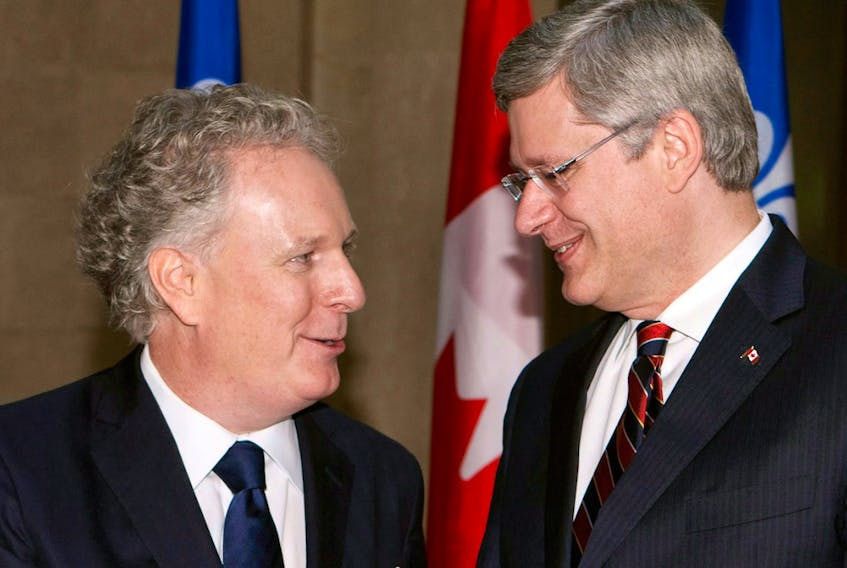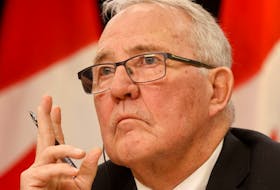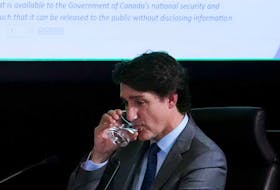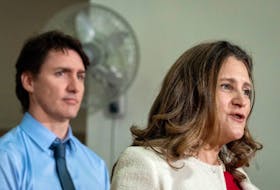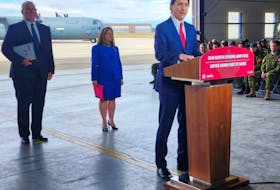He haunts the Conservative Party still. The news that Stephen Harper has resigned from the board of the Conservative Fund, which is responsible for the party’s finances, was trending on social media on Wednesday afternoon, overshadowing speculation about candidates running in the party’s leadership race.
The fact that Maclean’s attributed the resignation to the former prime minister’s desire to spike the guns of Jean Charest just added spice to the story.
Harper and the former Quebec premier have history. Back in 2007, Harper’s budget included $700 million in additional equalization payments for Quebec that Charest then used to fund tax cuts, rather than upgrade services, just before that year’s provincial election. It was a blatant act of political double-dealing, even if Charest dismisses it with insouciance — what kind of Conservative Party is not in favour of tax cuts, he wonders?
Harper has not forgotten the slight and he would probably be delighted if Charest resolved not to run for the leadership. (The former prime minister is in India and was not around to confirm whether Charest retains his undying enmity.)
But not one of the senior Conservatives I have spoken to — people who worked closely with the man for a decade or more — believe that he will publicly back one candidate over another. As one source pointed out, the whole business model of his firm Harper & Associates is built on remaining above the fray. He is said to have good relations with Rona Ambrose, whose intentions remain ambiguous, Pierre Poilievre, Erin O’Toole and even Peter MacKay, who confirmed his candidacy on Wednesday. “He gets along fine with Peter. I’m not aware of any conflict there,” said one source.
To back one would risk breaking up the party he put back together.
More likely, the source suggested, his decision to quit the Conservative Fund is rooted in the recent controversy over its involvement in funding Andrew Scheer’s schooling expenses. The party defended Scheer’s expenses as being the cost of being a national leader. But Harper was frustrated with the issue. It is noticeable that he has not yet tweeted thanks to Scheer for his service following his resignation, as is his norm.
Sources suggest he is concerned at a governance structure that leaves too much power and influence in the hands of the fund’s chair, retired former senator Irving Gerstein, and too little with the board that is meant to monitor its spending.
It’s true that Harper’s resignation was rather abrupt. But friends and former colleagues suggest he is happy to stay on the sidelines of the leadership race.
That contest is beginning to take shape with the formal entry of MacKay and Sarnia-Lambton MP, Marilyn Gladu. Charest’s supporters say he is still leaning toward running. Ambrose’s team say she is still considering her options, even though she is not actively building a leadership team. Poilievre and O’Toole have already assembled the experienced campaign staff needed to raise the $200,000 non-refundable entry fee and garner the signatures of 3,000 members.
As with the 2017 race, much will depend on who can appeal across the factions that make up the Conservative coalition. A unity candidate with broad support across the coalition is likely to pick up second ballot support, as other candidates are dropped under the party’s ranked ballot system.
Charest is under no illusions that this will be challenging for a former leader of the Quebec Liberal Party. His pitch is that it’s winning 24 Sussex that matters — and that he is better positioned than other candidates to beat Justin Trudeau.
Harper may disagree but it would be a major surprise if he comes out and says so publicly.
• Email: [email protected] | Twitter: IvisonJ
POPULAR ON NP RIGHT NOW:
Justin Ling: Justin Trudeau fails yet another transparency test
Chris Selley: Harper misquote shows why ‘regime change’ needed in some Canadian newsrooms
Vince Vaughn shakes hands with Donald Trump: Man who recorded clip gets death threats
Copyright Postmedia Network Inc., 2020

